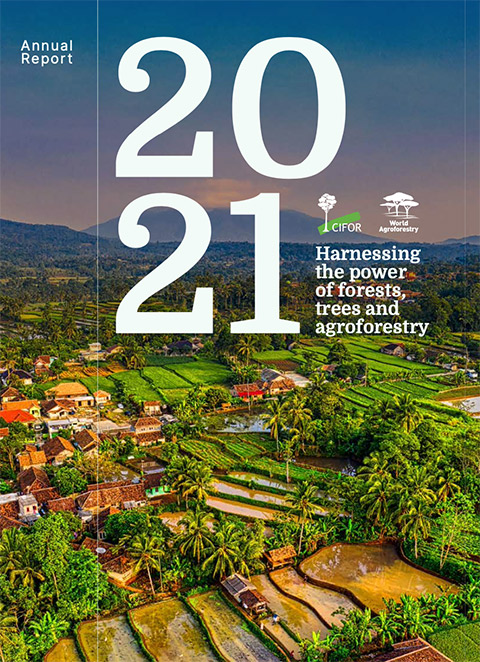Agroforestry can help tackle environmental, food security and nutritional challenges – but only if farmers choose to take up the practise.
Building on activities from phase one, T4FS-2 focused on tree diversity as the cornerstone of smallholder system intensification, integrating tree management with value-chain development, better water management and new approaches to govern livestock management.
In four years, the ACIAR-funded Trees for Food Security project (T4FS-2) increased the uptake of agroforestry technologies by over 145,000 beneficiaries in Uganda, Rwanda and Ethiopia. Over 48,000 households participated directly in various scaling up strategies, including the adoption of context-specific agroforestry technology options established through 5,036 participatory trials. Rural Resource Centres (RRCs) and satellite nurseries in the three countries produced over 4.2 million high-quality tree seedlings with support from the project, and 184 maps were generated outlining cost-effective suitable land and water management interventions for the different sites.
Policy engagement through the project contributed to the development of Rwanda Agroforestry Strategy and Action Plan (2018–2027) and the formation of a sustainable grazing platform in Ethiopia. In Uganda, CIFOR-ICRAF together with other stakeholders contributed towards the review of the existing national agroforestry strategy.
The project also identified country-specific tree value chains (timber, fruit and fodder) and associated financing options, offering insights to relevant stakeholders including private sector and local communities keen on commercializing the value chains. Capacity-strengthening efforts directly improved business skills among 200 traders and businesses – of whom 30% were women.
Over 10,000 beneficiaries, including women and youth, participated in agroforestry trainings and demonstrations, which – combined with improved supply of high-quality tree planting material – have spurred tree-based enterprises that are improving incomes, food and nutrition for households.
Another highlight is the development of an innovative agroforestry curriculum guide for tertiary academic institutions for upgrading of agroforestry training in the East Africa region, based on a comprehensive assessment of agroforestry curricula and extension training in higher learning institutions in the region. Eight PhD and two MSc students were supported by the project.
Key tools were among the project’s over 100 scientific outputs, including the APSIM Next Generation model and the ‘Interactive Suitable Tree Species Selection and Management Tool’ for Ethiopia, Rwanda and Uganda, which promotes tree diversity on farm and in landscapes, including useful exotic tree species not captured by existing vegetation maps.
Finally, T4FS-2 gained recognition/accreditation in Uganda by the Queen’s Commonwealth Canopy (QCC) initiative.
Funding partner: Australian Centre for International Agricultural Research (ACIAR)
Read
https://www.worldagroforestry.org“The project has demonstrated that involving farmers in research promotes cross-learning and helps to determine sustainable and profitable options that match their specific contexts and needs while providing maximum returns. This motivates them to continue and adapt the technologies.”
Catherine Muthuri
CIFOR-ICRAF County Director for Kenya and Regional Convener for East Africa

